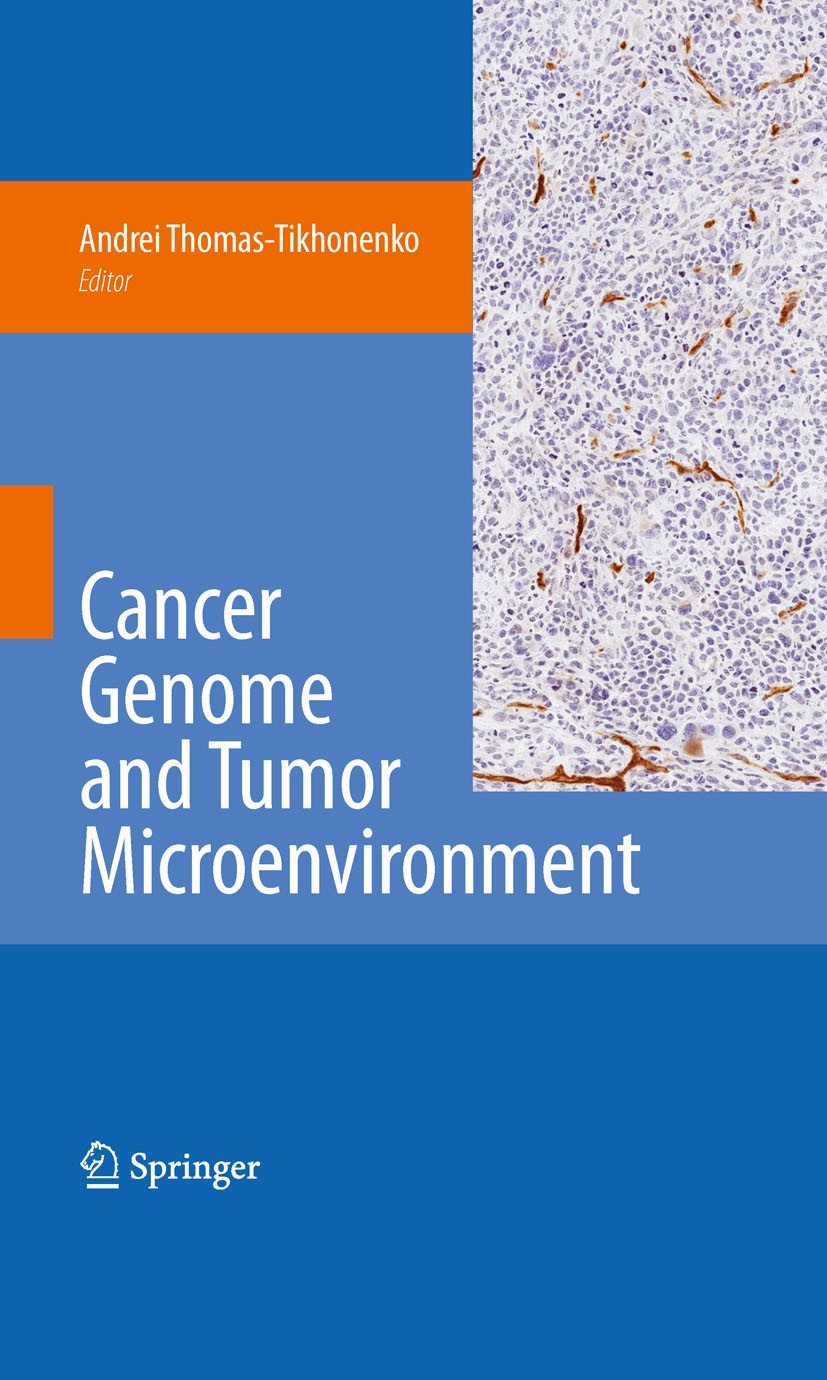| 书目名称 | Cancer Genome and Tumor Microenvironment | | 编辑 | Andrei Thomas-Tikhonenko | | 视频video | http://file.papertrans.cn/222/221115/221115.mp4 | | 概述 | Reviews how tumor microenvironment and progression are “hard-wired” at the genetic level.Includes supplementary material: | | 丛书名称 | Cancer Genetics | | 图书封面 |  | | 描述 | .Oncogenes and tumor suppressor genes had been traditionally studied in the context of cell proliferation, differentiation, senescence, and survival, four relatively cell-autonomous processes. Consequently, in the late ’80s-early ’90s, neoplastic growth was described largely as an imbalance between net cell accumulation and loss, brought about through mutations in cancer genes. In the last ten years, a more holistic understanding of cancer has slowly emerged, stressing the importance of interactions between neoplastic and various stromal components: extracellular matrix, basement membranes, fibroblasts, endothelial cells of blood and lymphatic vessels, tumor-infiltrating lymphocytes, etc. The commonly held view is that changes in tumor microenvironment are “soft-wired”, i.e., epigenetic in nature and often reversible. Yet, there exists a large body of evidence suggesting that well-known mutations in cancer genes profoundly affect tumor milieu. In fact, these non-cell-autonomous changes might be one of the primary reasons such mutations are preserved in late-stage tumors.. | | 出版日期 | Book 2010 | | 关键词 | Chromosom; angiogenesis; cell; genes; lymphocytes; lymphoma; melanoma; metastasis; senescence; tumor; tumor pr | | 版次 | 1 | | doi | https://doi.org/10.1007/978-1-4419-0711-0 | | isbn_softcover | 978-1-4614-2524-3 | | isbn_ebook | 978-1-4419-0711-0Series ISSN 2626-1456 Series E-ISSN 2626-1464 | | issn_series | 2626-1456 | | copyright | Springer-Verlag New York 2010 |
The information of publication is updating

|
|
 |Archiver|手机版|小黑屋|
派博传思国际
( 京公网安备110108008328)
GMT+8, 2025-12-17 22:19
|Archiver|手机版|小黑屋|
派博传思国际
( 京公网安备110108008328)
GMT+8, 2025-12-17 22:19


